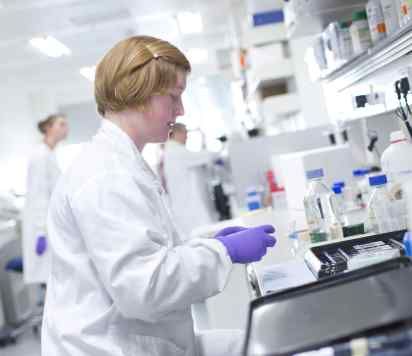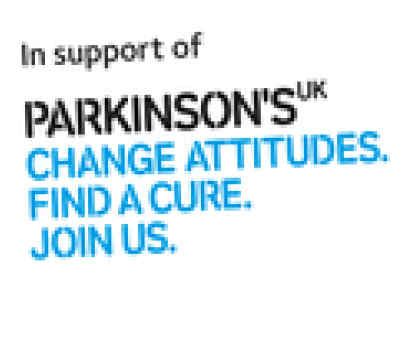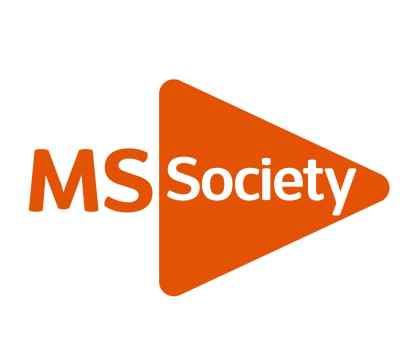Frequently asked questions
- Why is tissue needed for research on multiple sclerosis and Parkinson's Disease?
- Who can register as a donor?
- What tissues are needed?
- When and how will the tissues be retrieved?
- When and why it is sometimes NOT possible to go ahead with the tissue retrieval?
- What happens to my body after the tissues have been removed?
- How will my tissues be made available for research?
- How long will my tissues be stored and how will they be disposed of?
- Does the Tissue Bank need to know my medical history?
- What do I need to do now?
- What if I do not wish to proceed or change my mind once I have registered?
- Will my personal details be kept confidential?
- Who funds and oversees the work of the Tissue Bank?
The symptoms experienced by people living with multiple sclerosis and Parkinson’s are a result of damage taking place within their brain and/or spinal cord. Although there are a number of different ways to conduct research on these conditions, being able to study the very tissue that is damaged in this disease is vital to our developing better treatments. The Brain Bank retrieves and stores tissue bequeathed by registered donors and makes samples of the material available to scientists carrying out research on MS, Parkinson’s and related conditions. The donation of tissue is, therefore, a precious gift that will further our understanding of MS and Parkinson’s and make an essential contribution to finding a treatment for these conditions.
People living with MS or Parkinson’s, those with related conditions such as Dementia with Lewy Bodies, Multiple Systems Atrophy and Progressive Supranuclear Palsy and those who are healthy can all register on our donor scheme and bequeath tissue for research. Samples of tissue from people that did not have any brain condition are of crucial importance since they allow scientists to compare tissue damaged by MS or Parkinson’s with the healthy brain tissue. Please contact us if you have any specific queries.
Since MS and Parkinson’s are conditions specific to the brain and spinal cord, these tissues are of most use to research. The cerebrospinal fluid (CSF) bathes the brain and spinal cord; so, the study of CSF may also provide useful information. In order to explain why the damage is restricted to the brain and spinal cord, scientists may wish to compare this organ with other tissues, for example, muscle. Therefore, we routinely remove the following tissues and fluid from our donors:
- the entire brain
- the entire spinal cord
- the whole pituitary gland
- a sample of CSF - the clear, colourless liquid that surrounds the brain and spinal cord
- a small sample of muscle from the back
If a full autopsy is being conducted by the hospital, or on the order of the coroner, we will also collect samples of colon, intestines, spleen, liver, cervical lymph nodes and adrenal gland. Researchers have so far requested only this material, but it may be that sometime in the future scientists will need samples of tissue from other sites of the body in order to answer specific questions about MS and Parkinson’s. If this happens, we will always ask your next of kin's permission before removing any material in addition to that listed above.
The tissues listed above are removed after the registered donor has died. Tissues of the brain and spinal cord change very quickly after death and so material that has been removed from the body within 24 hours of death is of greatest value to research. However, tissue retrieved up to 48 hours after death can still be used in research. The procedure that we follow is shown on our donation procedure page. You will notice that we make the arrangements to make sure that everything is kept as straightforward as possible for your next-of-kin and carers at such a difficult times.
Since it is vital that we are contacted as soon as possible after your death, preferably within a couple of hours, we would ask you to ensure that your next-of-kin or legal representative, and health care professionals looking after you are aware of your bequest. Everyone concerned should know that in the event of your death someone needs to immediately telephone the Tissue Bank.
On rare occasions when we are not able to retrieve and preserve tissues within 48 hours due to unforeseen circumstances we will not go ahead with the tissue retrieval. This is because irreversible damage is induced in tissue samples after 48 hours and as such that tissue will not be useful for research. The Human Tissue Act introduced in 2006 clearly states that human tissue samples must not be taken if they are not to be used for the purpose specified in a given consent, i.e. medical research.
Major exclusion criteria for tissue retrieval:
- Presence of systemic infectious diseases, such as MRSA or septicaemia
- Unable to arrange retrieval within a specified time – currently 48 hours
- Death has to be certified by a coroner
- Too long a delay in being informed of death (close to 48 hours or over 48 hours)
- Our ability to rapidly retrieve tissue from our donors is very much reliant on the good will of GPs and NHS post mortem technicians. Their availability to assist is therefore not guaranteed.
Please note that this is not a conclusive list and other circumstances may arise in the future. We do our utmost to avoid delays by closely liaising with families and professionals.
The procedure used for removing the tissues will leave your body in a suitable state to be viewed at an open casket funeral. Since the tissues are removed as soon as possible after death, your donation to the Tissue Bank will not delay arrangements for the funeral. We will organise for the body to be transported from the hospital where the tissues were removed to the firm of undertakers that are going to be responsible for the funeral. No extra costs will be incurred by your relatives or carers as a result of these procedures.
The brain and spinal cord that we collect will be brought back to the Tissue Bank laboratory to be processed into approximately 250 individual tissue samples, this is done to ensure that each donation provides material to as many research projects as possible. The tissues will be preserved and stored safely and securely by the Tissue Bank until their respectful and ethical use in research. All these procedures are performed with the utmost respect for the individual who donated the tissues. We regularly promote our work in the scientific community so that the Tissue Bank will come to be identified as a valuable resource for scientists. These events also provide us with an opportunity to invite scientists to apply for tissue that they can use in their research on MS. Only once their applications have been received and reviewed, can we match their requirements with the tissue that we have available. Therefore, we cannot at this stage, predict what type of research your tissues will be used for, where or when the research will be carried out or by whom, but we assure you that we will try and supply as many research projects as possible to further our understanding of MS and Parkinson’s. The Tissue Bank was set-up to act as a resource for research, so we will consider applications from all scientists conducting research on MS and Parkinson’s whether they are working in or outside the UK or, in the public or private sector. Everyone receiving tissue from the Tissue Bank agrees to the same terms and conditions.
Your tissues will be immersed in formaldehyde (a liquid fixative that preserves tissue) or stored frozen at –85oC. These preservation techniques ensure that tissues will remain usable in research for many years to come. Some research studies can be carried out on tissue that has been stored in this way for ten years or more. If we have to dispose of your tissues because they are no longer suitable for research, we will do so only after consulting the funding charities and other appropriate organisations to make sure that it is done in an ethical and respectful manner. Samples of tissue that have been used in research are usually archived and after a suitable length of time respectfully disposed of by the researcher.
Since it is essential to relate studies on samples of tissue to the medical history of the tissue donor, we need your permission to access your medical records. You give this permission by signing the 'Consent for the Procurement of Tissue' form on our donor registration documents page. Once we have collected your tissues we will contact your general practitioner and neurologist if necessary and ask to consult your medical records. The information will be used to prepare a summary that will be supplied to the researchers who have received samples of your tissue. This medical summary will also help our neuropathologist to interpret his findings on examination of your brain and spinal cord. Your next-of-kin will be informed of the findings in the neuropathology report so that they can discuss the findings and their implications with their GPs if they wish to do so.
If, after having read all the information and discussed it with your family, you have decided to bequeath your tissues to research and none of your family has raised objections, then you and your next-of-kin will need to complete and return the three forms enclosed in the pack. We will keep your original registration forms and send you photocopies for your records. We will also send you your Tissue Bank Donor Card. Always carry your card so that in an emergency staff at a hospital will know immediately of your bequest to the Tissue Bank.
We understand that the donation of tissue is not right for everyone. If you do not wish to register you do not need to do anything further. Thank you for reading through these pages, we hope that you have found the information interesting. If at any time after having registered you change your mind and for whatever reason decide to withdraw your consent, just let us know (by telephone, letter or email) and we will return your original consent forms and remove your details from our computer database. If you have any queries either whilst deciding whether to register or once you have registered, please contact us.
All consent forms and related paperwork are stored in secure filing cabinets. Personal details of our tissue donors are never divulged to researchers receiving tissue or anyone outside the Tissue Bank. The databases that store details of individuals that have requested information, those registered as donors and those that have donated tissues, are on a secure computer that is only accessed by Tissue Bank staff.
The Tissue Bank is jointly funded by the Multiple Sclerosis Society of Great Britain and Northern Ireland and Parkinson’s UK. The charities have put in place a system of governance that ensures that the work of the Tissue Bank is regularly reviewed by an independent panel that includes experts on both conditions, in tissue banking and in research; persons with MS and Parkinson’s are also members of the panel. In addition, the literature, consent forms and procedures that are used by the Tissue Bank have all gained approval from the appropriate national ethics committee. Tissue Bank is fully licensed by the Human Tissue Authority, a government regulatory body that oversees the use of human samples in research and we are regularly to ensure compliance. Tissue donated to the Tissue Bank is a gift and therefore the Tissue Bank does not charge any of the researchers for the tissue that they have received.
Thank you again for reading through these pages and for finding out about making a very special contribution to discovering a treatment for multiple sclerosis. For more condition-specific information please download or request the appropriate information sheet from our donor registration documents page.
General enquiries
MS and Parkinson's Tissue Bank
Division of Brain Sciences
Imperial College London
Hammersmith Hospital Campus
Du Cane Road
London W12 0NN, UK
+44 (0) 20 7594 9734 (MS)
+44 (0) 20 7594 9732 (Parkinson's)
brainbank@imperial.ac.uk
Emergency contacts
From 1 December 2017 our emergency number is changing to
07566 950 965 (MS and Parkinson's)


